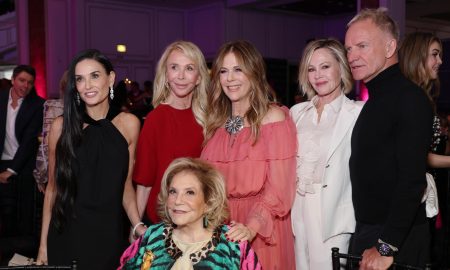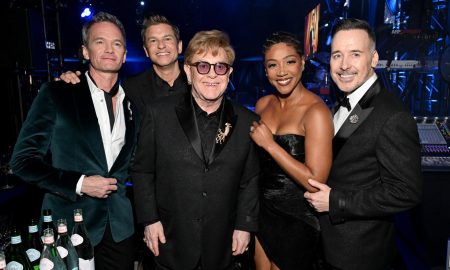
Hope for Depression Research Foundation 10th Annual Hope Luncheon Seminar held at the
The Plaza Hotel. Photos: ©Patrick McMullan; Jared Siskin/PMC
Last week the Hope for Depression Research Foundation (HDRF), the leading non-profit dedicated to advanced depression research held its 10th Annual HOPE Luncheon Seminar at The Plaza Hotel where award-winning CNN anchor and journalist Anderson Cooper was honored with the 2016 HOPE Award for Depression Advocacy.HDRF Founder and chair Audrey Gruss saluted Cooper for his public discussion of his family’s personal story of depression and suicide. His use of multi-media to speak out about his own family’s experience helps reduce stigma and encourages millions of life-saving conversations.
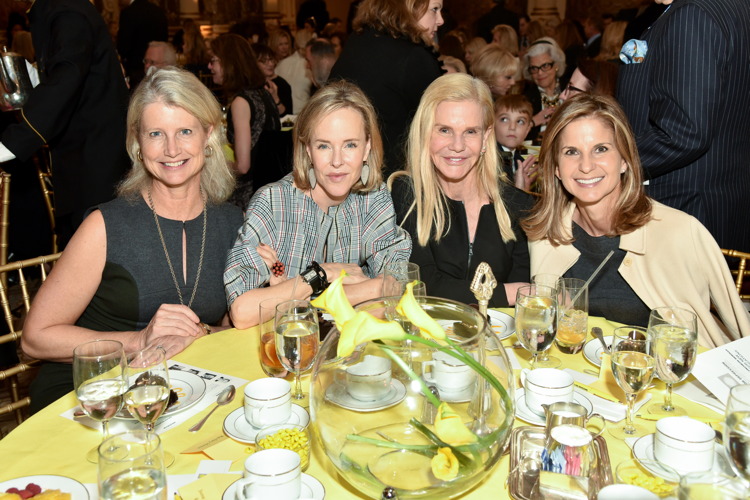
Focused on the topic “The Search for New Depression Treatments,” the sold-out event featured Dr. John Krystal, Yale’s Chief of Psychiatry, who spoke about the crisis in depression research. Dr. Helen Mayberg of Emory University explained her pioneering work in Deep Brain Stimulation and the latest discoveries of HDRF’s elite team of researchers collaborating as the Depression Task Force.
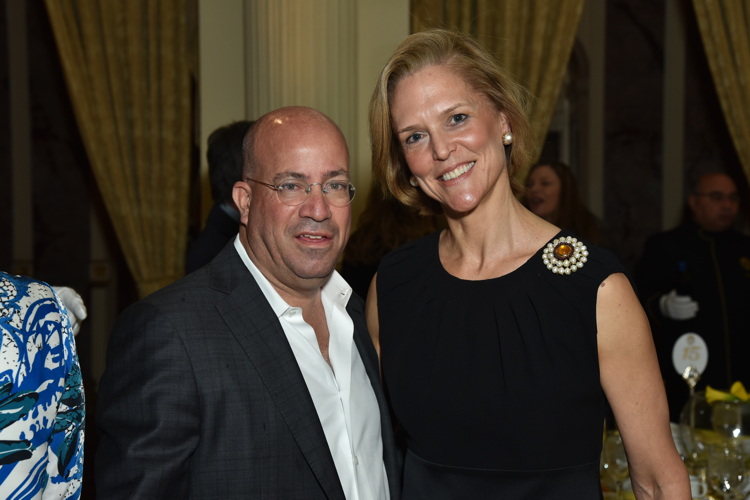
Chuck Scarborough was master of ceremonies and guests, including Jay McInerney, Karen LeFrak, Susan Gutfreund, and HRH Princess Katherine of Serbia, listened as he noted that depression has become the primary reason in the world for disability. He also noted the rise of depression awareness in the media, with a growing movement of celebrities — Bruce Springsteen, Lady Gaga, Selena Gomez, Kristen Bell, Naomi Judd and the rapper Kid Cudi — speaking out against stigma and sharing their personal experience with the illness.
HDRF Executive Director Louisa Benton spoke about the strong presence of HDRF in the media through the new technology of a satellite media tour conducted by Audrey Gruss in 30 U.S. cities. She also shared the powerful TV advertisement created by McCann Humancare. Benton briefly described the success of the first Walk of Hope this past July in Southampton. She then introduced 11-year-old Shane Boylan, who raised $4,000 with a bike ride he organized in memory of his father, who died by suicide.
Gruss then presented “journalist, author, thinker and humanitarian,” Anderson Cooper, who accepted the HOPE Award with a moving speech that explained how he managed his emotions after his brother committed suicide in 1988. He became a war reporter and traveled the world telling other people’s stories before he began to heal by telling his own story. He said there were moments in the “dwindling light of day when you expected to find darkness and [instead] you find light and humanity.” He concluded with saying, “Each of us will get by the best that we can [but] we must reach out and tentatively touch with our hands, with our eyes, and with our hearts.”
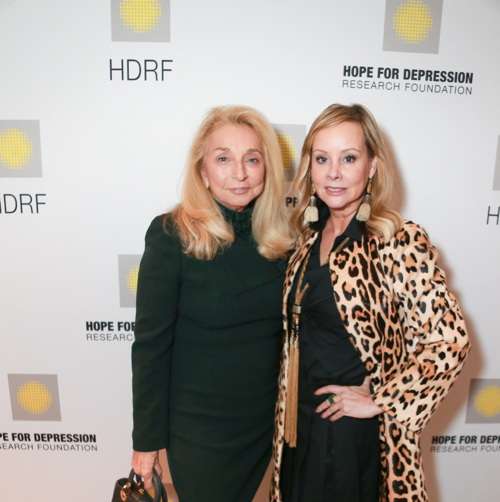
The Luncheon Seminar Co-Chairs were Caroline Dean, Arthur Dunnam, Bonnie Pfeifer Evans, Peter Gregory, Susan Gutfreund, Tania Higgins, Eleanora Kennedy, Margo Langenberg, Jay McInerney, and Farah Moinan.. Guests included: Janna Bullock, Sharon Bush, Caroline Dean, William Flaherty, Jamee Gregory, Martin Gruss, Mai Hallingby Harrison, Kim Heirston, Yaz Hernandez, Ritchey Howe, Eleanora Kennedy, Margo Langenberg, Kamie Lightburn, Sharon Loeb, Christine Mack, Lorrie & Mark Newhouse, Tom Quick, Patti Raynes, Nancy Silverman, Scott Snyder and Robert Zimmerman.
ABOUT THE HOPE FOR DEPRESSION RESEARCH FOUNDATION: HDRF’s mission is to fund the most innovative neuroscience research into the origins, diagnosis, treatment and prevention of depression and other mood disorders – bipolar disorder, postpartum depression, post-traumatic stress syndrome, anxiety disorder and suicide. Founding Chair Audrey Gruss launched HDRF in 2006 in memory of her mother Hope, who struggled with depression for decades.
In 2010, HDRF created its Depression Task Force (DTF) – a ollaboration of eight leading scientists, at the frontiers of brain science, from different research institutions across the U.S. and Canada. These scientists have developed an innovative research strategy that integrates the most advanced findings in genetics, epigenetics, molecular biology, electrophysiology, and brain imaging. To accelerate breakthrough research, they share ongoing results, in real time, at the HDRF Data Center. For more information, visit: www.hopefordepression.org











